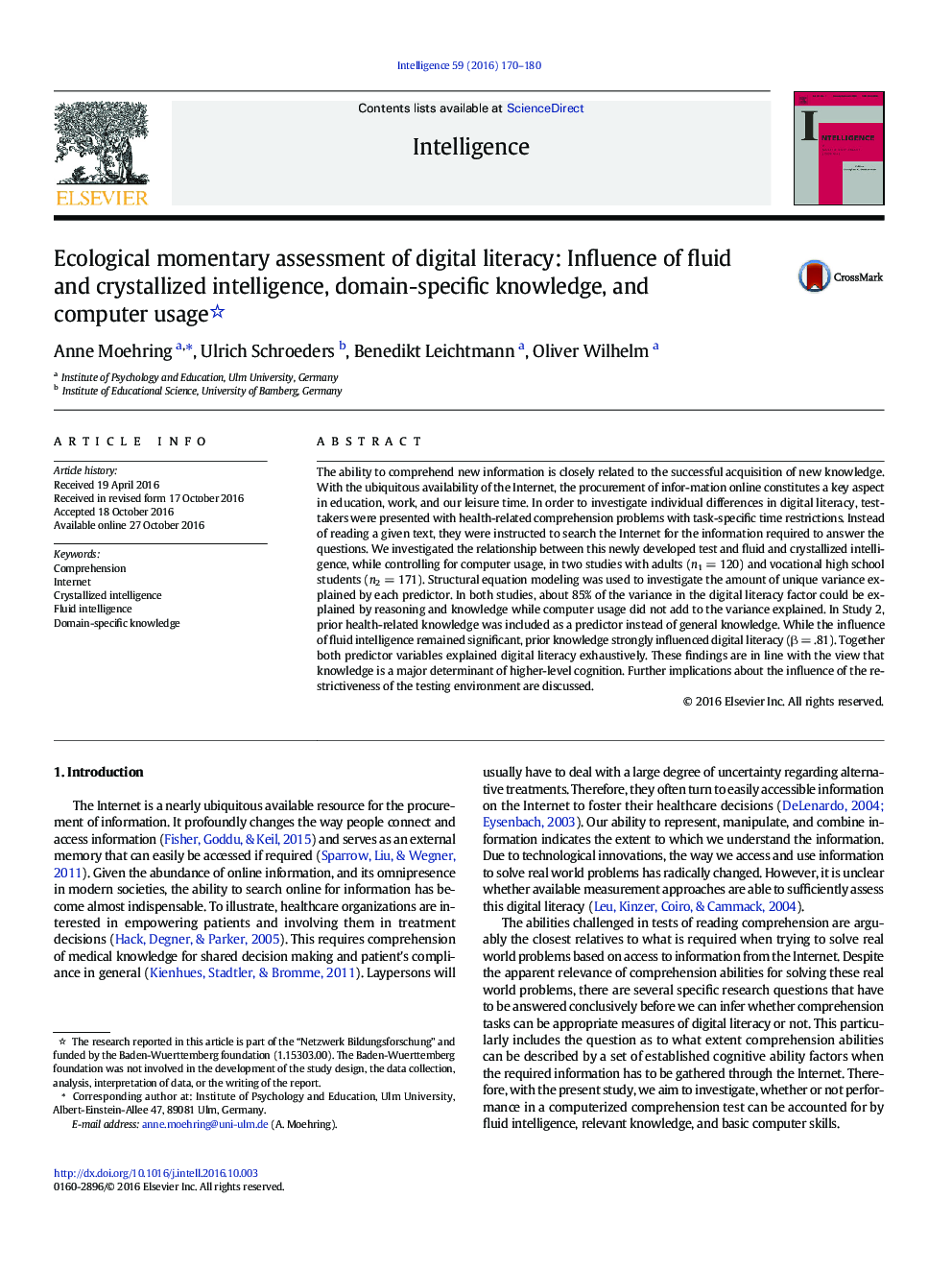| کد مقاله | کد نشریه | سال انتشار | مقاله انگلیسی | نسخه تمام متن |
|---|---|---|---|---|
| 5042184 | 1474257 | 2016 | 11 صفحه PDF | دانلود رایگان |
- A newly developed digital literacy test yielded good psychometric properties.
- Fluid and crystallized intelligence explain 85% of the variance in the performance.
- Domain-specific knowledge is the strongest determinant of digital literacy.
- Computer usage does not add to the explanation of digital literacy skills.
The ability to comprehend new information is closely related to the successful acquisition of new knowledge. With the ubiquitous availability of the Internet, the procurement of infor-mation online constitutes a key aspect in education, work, and our leisure time. In order to investigate individual differences in digital literacy, test-takers were presented with health-related comprehension problems with task-specific time restrictions. Instead of reading a given text, they were instructed to search the Internet for the information required to answer the questions. We investigated the relationship between this newly developed test and fluid and crystallized intelligence, while controlling for computer usage, in two studies with adults (n1 = 120) and vocational high school students (n2 = 171). Structural equation modeling was used to investigate the amount of unique variance explained by each predictor. In both studies, about 85% of the variance in the digital literacy factor could be explained by reasoning and knowledge while computer usage did not add to the variance explained. In Study 2, prior health-related knowledge was included as a predictor instead of general knowledge. While the influence of fluid intelligence remained significant, prior knowledge strongly influenced digital literacy (β = .81). Together both predictor variables explained digital literacy exhaustively. These findings are in line with the view that knowledge is a major determinant of higher-level cognition. Further implications about the influence of the restrictiveness of the testing environment are discussed.
Journal: Intelligence - Volume 59, NovemberâDecember 2016, Pages 170-180
